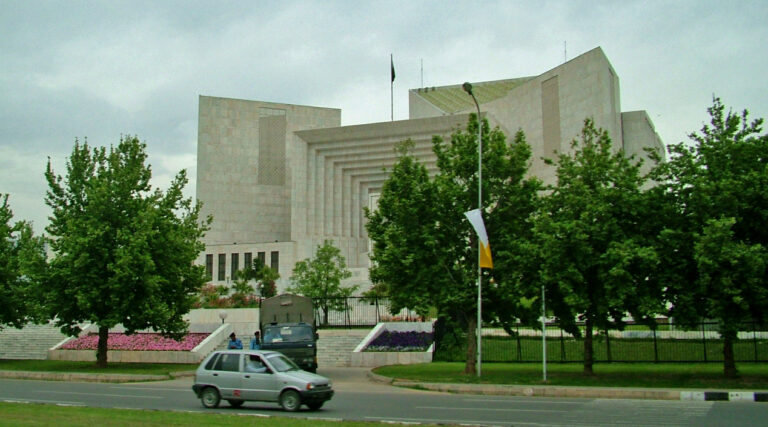
A Belated Book Review: Rabbi Dr. Emanuel Rackman, “Israel’s Emerging Constitution” (1954) and Its Continued Relevance
Michael J. Broyde
Nuremburg Trials Protocols by David Shay (CC BY 3.0 DEED)
Prologue
Rabbi Dr. Emanuel Rackman (b. 1910, d. 2008) was a unique figure in the Orthodox Jewish community. Besides his well-known intellectual brilliance, he was involved with nearly every important Orthodox organization in America for many decades and then moved to Israel to be the president of Bar Ilan University, starting a second career in his late 60s, which lasted for nearly two decades. In his late 80s, he started a rabbinical court to free women chained to a dead marriage under Jewish Law (agunot), which was not widely accepted. At Rackman’s 90th birthday event (which this author attended), one of the speakers noted that “Rabbi Rackman’s blessing has been that he is as aggravating in his 90s as he was in his 20s,” which many laughed at because it was so true.
Indeed, this is so: from his court martial and acquittal in the 1950s to his leadership of two prominent synagogues, his presidency of both the New York Board of Rabbis and the Rabbinical Council of America, his being provost at Yeshiva University and President of Bar Ilan, one is hard-pressed to find an important job in the Orthodox community in the United States that Rabbi Rackman did not hold, or was a candidate to hold.
Furthermore, Rackman wrote much in rabbinics – both popular and scholarly, although, truth be told, much of his vision of Orthodoxy has not [yet?] been accepted, and perhaps never will be. Yet, Rabbi Rackman wrote one serious academic work which—it turns out—was deeply correct in its analysis, had nothing to do with Jewish law, and predicted aspects of the development of the State of Israel that are still playing out. Rackman’s “Israel’s Emerging Constitution” (Columbia University Press, 1954) is the book that I am reviewing.
Although Rackman had a law degree from Columbia and practiced law in New York for many years, in the late 1940’s, after he returned from his military service, but before his acquittal at court martial, he was awarded a PhD from Columbia University in political science. His dissertation was on the development of the Constitution in Israel. But, as our readers might know, Israel does not have a constitution! Yet, in the early years of the nation, there was a deep commitment to writing such. Indeed, Israel’s Declaration of Independence commits it to writing a constitution:
We hereby declare that as from the termination of the Mandate at midnight this night of the 14th to 15th of May, 1948 and until the setting up of duly-elected bodies of the state in accordance with a constitution to be drawn up by a constituent assembly not later than the first day of October, 1948, the present National Council shall act as the Provisional State Council, and its executive organ, the National Administration, shall constitute the Provisional Government of the state of Israel.
Rackman’s dissertation was entitled “Israel’s Emerging Constitution 1948-1951” and it was published as a book by Columbia University Press in 1954, with a 1955 copyright. This book, with its close read of the Israeli situation in those early years of the nation, notes that the establishment of a constitution is fraught with controversy. The Prime Minister flipped on this topic, Mapai (then the largest party) divided, Mapam (then the second largest party) favored a constitution, the united Zionist parties were deeply split, and by 1950 all of the religious parties opposed a written Constitution. A review of his book, now over 50 years late, is below. The purpose of writing a review now is straightforward. First, it is meant to show how predictable—and thus how avoidable—the current legal crisis in Israel was and is. Rackman foresaw these problems more than seventy years ago, and Israel had a long time to avoid these complexities. Yet, they did not. Second, I write this review to suggest that these problems have always had a solution: to write a constitution that outlines the basic structure between the various branches of government and the rights the people have against government. Rackman noted that, in the early stages of the nation, most Israeli citizens were not concerned with the lack of either constitutional rights or constitutional structure. Indeed, they believed “that the ultimate preservation of democratic institutions depends less upon constitutional guarantees than upon the general consensus of the land’s inhabitants.” Most now probably think this is wrong.
In short, this review brings Rackman’s keen insights to light in a new context and helps in charting a path forward.
A Book Review Seven Decades Delayed: The Prophetic Vision of Rabbi Emanuel Rackman’s “Israel’s Emerging Constitution 1948-1951”
Seventy years on, Emanuel Rackman’s “Israel’s Emerging Constitution” (Columbia University Press, 1954) stands as a testament to the foresight and depth of understanding that marked his examination of the nascent State of Israel’s developing legal framework. Published in the early 1950s, Rackman’s work offers a compelling analysis of the embryonic societal and legal structures of a nation freshly forged in the aftermath of conflict and burgeoning with the arrival of Holocaust survivors. This review, albeit significantly delayed, seeks to evaluate the enduring relevance of Rackman’s insights, particularly his predictions regarding the challenges of drafting a formal constitution amidst the complex interplay of religious, secular, and ethnic divides within Israeli society.
At the heart of Rackman’s analysis are the principles of the Declaration of Independence, a foundational document that promised to enshrine democratic ideals and ensure equality for all of Israel’s inhabitants. Rackman delved into how Israel’s legal and societal framework might evolve to fulfill these lofty aspirations. He posited that the multifaceted nature of Israeli society would significantly impede the drafting of a unified, comprehensive constitution, a prediction that has been borne out over the subsequent decades. Despite several attempts and the establishment of Basic Laws that serve as constitutional chapters, Israel remains without a singular, consolidated constitutional document.

Instead Israel adopted the Harari compromise (named after its major advocate, Yitzhar Harari), recommending that parliament codify some basic laws and call it a constitution. Over the course of many years, Israel has adopted fourteen basic laws that have slowly developed the status of a quasi-constitution, which the Supreme Court of Israel now uses to overrule other laws passed by the Knesset. The problem with this approach is obvious: the Knesset can—and does—pass new basic laws at any time by a simple majority vote, “amending” the “constitution” any time it wishes. Five Basic laws have been passed since 1990. Important questions of structure—such as how judges are appointed—are determined by laws passed by the Knesset, tempered only by mass protests. Imagine if a majority of the U.S. House of Representatives could unilaterally amend the Constitution in America, limited only by popular protest? Indeed, the basic idea of a constitution is that it comes from the people and binds the legislators; not that it comes from the legislators and binds the people.
Rackman’s foresight into the religious-secular divide is particularly prescient. He anticipated that the tension between upholding religious laws and embracing a modern legal framework reflective of democratic values would present a persistent challenge. This divide has indeed become a central theme in Israel’s legal and political discourse, influencing a wide range of debates, from marriage and divorce laws to public transportation on the Sabbath. The ongoing struggle to balance religious traditions with the demands of a diverse, democratic society encapsulates one of the core dilemmas Rackman identified.
Moreover, Rackman’s insights extended to the Jewish-Arab dynamic within Israel’s legal system. He recognized early on that the integration of Israel’s Arab minority would test the commitment to equality espoused in the Declaration of Independence. The years have seen this integration as a process marked by both achievements and challenges, yet the complexities introduced by the post-1967 conquest of the West Bank, and Golan, which Rackman could not have foreseen, have added layers of complexity to this issue.
Another critical aspect of Rackman’s work is his discussion on the implications of the absence of a formal constitution on Israel’s internal cohesion and international standing. He argued that a written constitution could act as a unifying force, articulating the state’s values and legal principles. The lack of such a document, Rackman suggested, might exacerbate internal divisions and create ambiguity in Israel’s international relations.
Central to Rackman’s analysis is a nuanced appreciation for the intricacies of nation-building in a state striving to be both Jewish and democratic. He acknowledged the inherent tensions in this dual identity and the difficulties they would pose for codifying a unified legal framework. Revisiting Rackman’s work through the lens of seven decades reveals his deep understanding of the challenges that have come to define Israel’s legal and political landscape.
Rackman’s work also delved into specific legal issues, such as the Haredi draft exemption, which, at the time, was a controversy involving a relatively small community. He intuited that the exemption would exacerbate societal divisions, a prediction that has become increasingly relevant as the debate around this issue has intensified over the years.
In the broader context of Israel’s legal development, Rackman’s analysis touched on various facets of law, including the potential for Basic Laws to evolve into a more formalized constitution. He explored the role of the judiciary in shaping Israel’s legal landscape, foreseeing the Supreme Court’s increasing involvement in constitutional matters, although he assumes ultimate ‘parliamentary supremacy’. His examination of these issues highlighted the dynamic nature of Israel’s legal system and its capacity for adaptation and change.
Rackman also considered the role of international law and Israel’s obligations under various treaties and conventions. He emphasized the importance of aligning domestic Israeli law with international standards, foreseeing the challenges Israel would face in navigating its international legal commitments. Rackman’s work underscored the complex interplay between national identity, democratic values, and international law; themes that remain highly relevant in contemporary discussions about Israel’s legal framework.
In sum, Rackman’s “Israel’s Emerging Constitution” is a work of remarkable foresight and scholarly depth. It not only predicted many of the legal and societal challenges that Israel would face but also offered a profound exploration of the principles and values that could guide the nation’s legal development. This review, though arriving seventy years after the book’s publication, affirms the enduring relevance of Rackman’s insights, underscoring his significant contribution to our understanding of Israel’s constitutional journey and the intricate tapestry of its national identity.
Afterward
Of course, one recent development needs to be noted. In the Israeli Supreme Court decision, entitled Movement for Quality Government v. Knesset (HCJ 5658/23 decided 01/01/2024), twelve of the fifteen justices of the Supreme Court of Israel decided (at least in part) that the Declaration of Independence of Israel is a constitution-like document whose words can and do limit the power of the government of Israel. Furthermore, 8 of these 12 Justices (and thus a majority of the Court) determined that Amendment No. 3 to Basic Law: The Judiciary (the “reasonableness amendment”) is unconstitutional.
What Rackman assumed is that in a parliamentary system, there would be no authority above the parliament (Knesset). So, in order to achieve this result, the Israeli Supreme Court had to “constitutionalize” the Declaration of Independence—or the ideas encapsulated in it—and insist that the guarantees found within it are above the legislative branch to alter. The basic idea—as explained explicitly by Justice Alex Stein in his opinion in the above case—is that all laws, even the Basic Laws passed by the Knesset, are subject to the boundaries established in the Declaration of Independence. Israel, therefore, must be a “democratic state” as noted in the Declaration of Independence. After all, the Declaration of Independence is cited numerous times in the decision by various opinions throughout the nation’s history.
Rackman’s analysis of the principles present at Israel’s founding emphasizes the foundational significance of the ideas in the Declaration of Independence in establishing the Jewish state’s character, sovereignty, and guiding principles. He perceives the ideas present in the Declaration (which Rackman called the “Proclamation of Independence”) and later incorporated in the draft constitutions that were shared in the years 1948 to 1951 as essential documents that outline Israel’s commitment to democracy, freedom, justice, and peace, rooted in the historical and spiritual connection of the Jewish people to the land.
His discussion suggests that the Declaration serves as a pivotal moment for Israel, not only in asserting its right to exist as a sovereign nation but also in setting forth the values and ideals that should guide its governance and society. However, the core of this argument—one that Rabbi Rackman ponders but does not focus on—is that the Declaration of Independence is not just a historical document (like the American one) but one where the legal guarantees of the document are to be enforceable by the Courts. Indeed, other than a brief discussion of that idea (around pages 113-115), there is no further discussion. However, Rackman emphasizes the breadth and depth of these ideas in this book.
It is important to understand what guarantees are found in the Declaration of Independence. After noting that Israel is the name of the Jewish State, the Declaration of Independence insists that:
THE STATE OF ISRAEL will be open for Jewish immigration and for the Ingathering of the Exiles; it will foster the development of the country for the benefit of all its inhabitants; it will be based on freedom, justice and peace as envisaged by the prophets of Israel; it will ensure complete equality of social and political rights to all its inhabitants irrespective of religion, race or sex; it will guarantee freedom of religion, conscience, language, education and culture; it will safeguard the Holy Places of all religions; and it will be faithful to the principles of the Charter of the United Nations.
These guarantees are actually quite extensive: from “Jewish immigration” to “freedom, justice and peace,” “equality of social and political rights to all its inhabitants irrespective of religion, race or sex” to “freedom of religion, conscience, language, education and culture.”
So how will Israel’s “new” Constitution be understood by the Court in future? I think Rackman’s answer would have been that this is essentially a political question and not a judicial one. Maybe he would smile, his eyes would twinkle as they did so nicely, and he would wittily observe that “a Constitution has emerged.” ♦

Michael J. Broyde — whose given Hebrew name is Mattiyahu — is a law professor at Emory University who writes on matters of Jewish law generally. He is an ordained rabbi who has served in a variety of rabbinical roles. For more information about him, see www.broydeblog.net.
Recommended Citation
Broyde, Michael J. “A Belated Book Review: Rabbi Dr. Emanuel Rackman, ‘Israel’s Emerging Constitution’ (1954) and Its Continued Relevance.” Canopy Forum, April 18, 2024. https://canopyforum.org/2024/04/18/a-belated-book-review-rabbi-dr-emanuel-rackman-israels-emerging-constitution-1954-and-its-continued-relevance/.
Recent Posts










